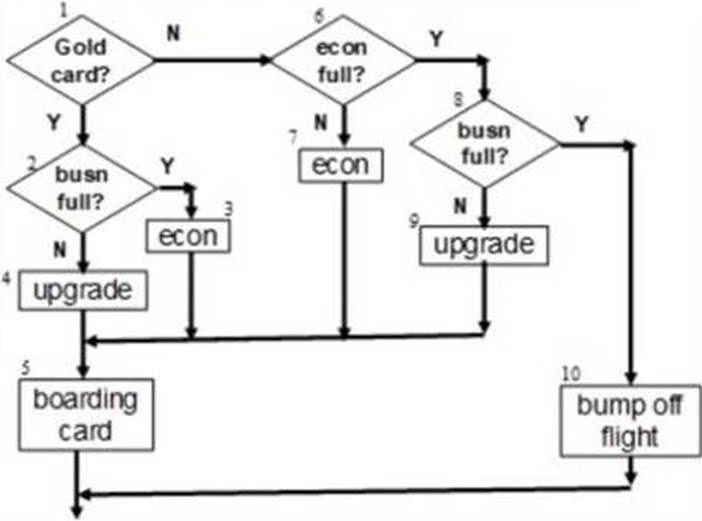What is the level of decision coverage achieved by these three tests?
Consider the following specification:

If you are flying with an economy ticket, there is a possibility that you may get upgraded to business class, especially if you hold a gold card in the airline’s frequent flier program. If you don’t hold a gold card, there is a possibility that you will get ‘bumped’ off the flight if it is full when you check in late.
This is shown in the control flow graph below. Note that each box (i.e., statement, decision) has been numbered.
Three tests have been run:
Test 1: Gold card holder who gets upgraded to business class
Test 2: Non-gold card holder who stays in economy
Test 3: A person who is bumped from the flight
What is the level of decision coverage achieved by these three tests?
A . 60%
B . 67%
C . 75%
D . 80%
Answer: B
Explanation:
The control flow graph provided illustrates the decision points for an airline’s upgrade and boarding process. Decision coverage is a measure of the percentage of decision points executed during testing: Test 1 covers the decision points: Gold card? (Yes) and Business full? (No).
Test 2 covers: Gold card? (No) and Economy full? (No).
Test 3 covers the decision that leads to being bumped from the flight, which is Economy full? (Yes) and Business full? (Yes).
From the given tests, the decision points for Gold card? (No) and Business full? (No) are not tested, leaving us with 4 out of 6 decision points covered, which is approximately 67% decision coverage.
Latest CTAL-TTA Dumps Valid Version with 65 Q&As
Latest And Valid Q&A | Instant Download | Once Fail, Full Refund

